There are many reasons I love living at Meadowlark Hills: friendly residents and staff; easy access to friends in a variety of levels of care; excellent food services; exercise classes; Meadowlark...
The Christmas Trains
December 4, 2025
Local not-for-profit focused on supporting people in living their best lives
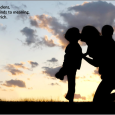
The Bushman people of the Kalahari Desert in southern Africa speak of two hungers: the Small Hunger of finding food and the Great Hunger of finding meaning in life. From what I’ve read and heard, it seems that all people speak of these two hungers.
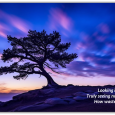
One June day a few summers ago, I saw something beautiful, something profound, something too rarely practiced, something whose ramifications are too rarely considered.
I did not see the ultimate trophy home, not an immaculately manicured lawn or golf course, not the latest over-powered muscle car, not a world record set of elk antlers, not the world’s tallest tree, not the most symmetrical set of African elephant tusks ever found, not a beauty pageant, nor some masterfully played athletic contest.
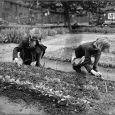
Webster’s definition for the word “garden” just about covers everything: a plot of ground, usually near a house, where flowers, vegetables, or herbs are cultivated. Or, “a piece of ground or other space commonly with ornamental plants, trees, etc., used as a park or other recreational area, e.g., as an arboretum.” Or, “any beautiful, pleasing, restful piece of land.”
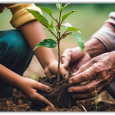
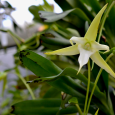

Most of us are aware of the notion that a pebble dropped into the ocean will, via a cascade of interconnected mechanisms, eventually affect the entire ocean. Sounds far-fetched, but the idea holds more truth than most people wish to accept.

How long has it been since you’ve experienced a moment of genuine healthful silence, a time during which you were profoundly, silently, reverently alone with yourself, or with Nature, or with another (your soulmate, perhaps), or with your God? Such rich moments are possible when you are watching, watching beyond motive, beyond any demand—just watching. When you see the beauty of a lone tree in the field, a single star in the void, when you watch your soulmate, or your internal self—or speak to your god—silence is something that comes naturally.
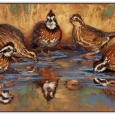
I treasure the first time I was motivated to look past the surface of a wild scene, to ponder the meanings, the fates, of the natural structures or wild organisms I was watching. It was the first time that I tried to consider the meanings, the ramifications of the interactions between the organisms in my view. Perhaps you have known the same joy.

Earlier this year, I attended the celebration-of-life service for an old friend. Hazel had died at age 103, but I first met her in 1943 when she was a young married woman and I was a 12-year-old new in town. Her passing meant the shuttering of yet another window through which I once could see “way back when.” The last living person who knew me during my childhood.
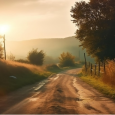
There once was a time when the order of my day included playing with my buddies, fighting with my sister (13 months younger), wishing mightily that this fourth year of grade school were over, doing a couple of assigned farm chores, and putting off homework as long as possible. That arithmetic workbook was the sinkhole of my existence.
There are many reasons I love living at Meadowlark Hills: friendly residents and staff; easy access to friends in a variety of levels of care; excellent food services; exercise classes; Meadowlark...
2121 Meadowlark Road
Manhattan, KS 66502
Directions & Map
Call: 785.537.4610
Email: info@meadowlark.org
December 4, 2025
November 13, 2025
